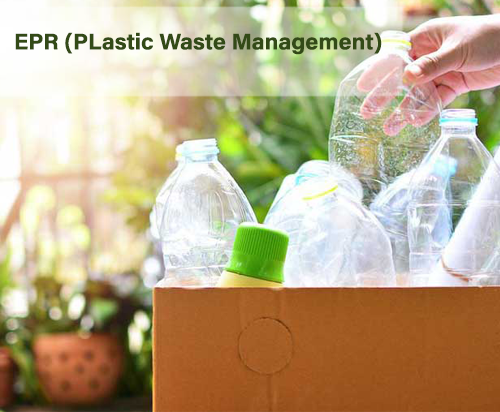
EPR PLASTIC
EPR PLASTIC PLASTIC PLASTIC

Plastic Waste Management
Plastic waste management is a critical issue. Over 300 million metric tons of plastics are produced in the world annually and about fifty percent of this volume is for disposal applications, product that are discarded within a year of their purchase.
Plastic products have become an integral part of our daily life because of which the polymer is produced at a massive scale worldwide.
According to the reports for year 2017-18, Central Pollution Control Board (CPCB) has estimated that India generates approximately 9.4 million tonnes per annum plastic waste
The Society of the Plastics Industry, Inc. (SPI) introduced its resin identification coding system in 1988 at the urging of recyclers around the country. The seven types of plastic include: 1. Polyethylene Terephthalate (PETE or PET) 2. High-Density Polyethylene (HDPE). 3. Polyvinyl Chloride (PVC) 4. Low-Density Polyethylene (LDPE) 5. Polypropylene (PP) 6. Polystyrene or Styrofoam (PS) 7. Miscellaneous plastics (includes polycarbonate, polylactide, acrylic, acrylonitrile butadiene, styrene, fiberglass, and nylon).
- These rules shall apply to every Waste Generator, Local Body, Gram Panchayat, Manufacturer, Importer, Producer and Brand Owner.
- Carry bags made of virgin or recycled plastic, shall not be less than fifty microns in thickness. The provision of thickness shall not be applicable to carry bags made up of Compostable plastic, complying IS/ISO: 17088.
1. Company Legal Proof (COI)
2. Pan Card of company
3. Authorized person name designation, mobile no, pan card, Aadhar card, email id
4. GST certificate
5. Scanned copy of signature of authorized person
6. Sales data with invoices